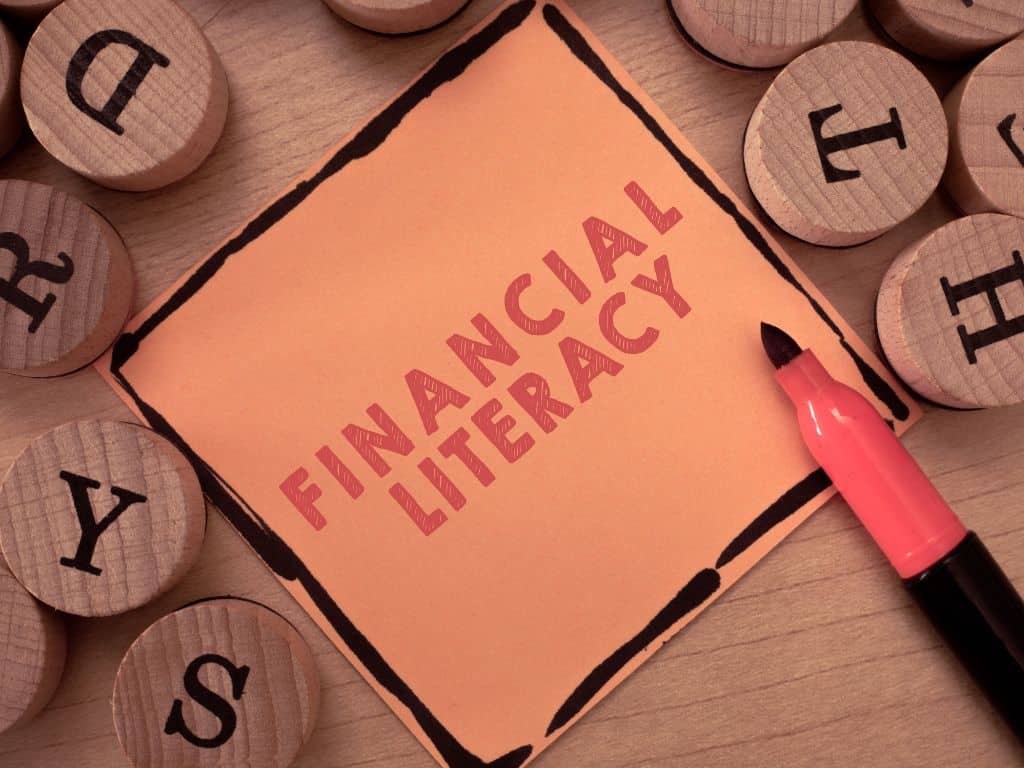In today’s complex and ever-changing financial landscape, it is crucial to equip teenagers with the necessary knowledge and skills to make informed financial decisions. Financial literacy plays a vital role in empowering young individuals to navigate the challenges of managing money, budgeting, and planning for their future.
This article explores the importance of providing teenagers with financial literacy education and the long-term benefits it can bring.
What is Financial Literacy?
Financial literacy refers to the ability to understand and use various financial skills, including personal financial management, budgeting, saving, investing, and understanding financial products and services. It involves acquiring knowledge, skills, and attitudes that enable individuals to make informed financial decisions.
Why is Financial Literacy Important for Teenagers?
Building a Strong Foundation: Financial literacy education at a young age helps teenagers develop a solid foundation for managing their finances throughout their lives. It equips them with the necessary skills to make responsible financial choices and avoid common pitfalls.
Developing Money Management Skills: By learning about budgeting, saving, and spending wisely, teenagers can develop essential money management skills. These skills are crucial for achieving financial stability and independence in adulthood.
Making Informed Decisions: Financial literacy empowers teenagers to make informed decisions about their money. They can evaluate financial products like what are same day loans, how do credit cards work, why to repay debt quickly, etc., understand the implications of borrowing, and assess the risks and rewards of different investment options.
Avoiding Debt and Financial Stress: With financial literacy education, teenagers can understand the consequences of excessive debt and the importance of responsible borrowing. This knowledge helps them avoid falling into debt traps and experiencing financial stress later in life.
Planning for the Future: Financial literacy enables teenagers to plan for their future financial goals, such as higher education, homeownership, or starting a business. They can learn about saving, investing, and long-term financial planning to achieve their aspirations.
Implementing Financial Literacy Education for Teenagers
1. Incorporating Financial Literacy in School Curriculum
Integration into Mathematics and Economics: Financial literacy concepts can be integrated into the existing mathematics and economics curriculum. This approach ensures that teenagers receive financial education as part of their regular academic studies.
Dedicated Financial Literacy Courses: Schools can introduce dedicated financial literacy courses that cover topics such as budgeting, saving, investing, understanding credit, and consumer rights. These courses can be tailored to different age groups and gradually increase in complexity.
2. Parental Involvement and Home-Based Learning
Encouraging Financial Discussions at Home: Parents play a crucial role in teaching financial literacy to their teenagers. By discussing money matters, budgeting, and saving at home, parents can reinforce the concepts learned in school and provide practical examples.
Setting Financial Goals and Allowances: Parents can help teenagers set financial goals and provide them with allowances or opportunities to earn money. This hands-on experience allows teenagers to practice budgeting, saving, and making financial decisions in a controlled environment.
Benefits of Early Financial Education
1. Building Financial Confidence
Financial literacy education at a young age helps teenagers build financial confidence. By understanding basic financial concepts and learning practical money management skills, teenagers develop a sense of empowerment and control over their financial lives.
They gain the confidence to make informed decisions about saving, spending, and investing, setting them up for a lifetime of financial success.
2. Cultivating Responsible Spending Habits
One of the key benefits of financial literacy education for teenagers is the cultivation of responsible spending habits. By teaching teenagers to differentiate between needs and wants, they learn to prioritize their spending and make wise financial choices.
They become more conscious of their spending patterns, avoiding impulsive purchases and unnecessary debt. This early exposure to responsible spending habits sets the foundation for a lifetime of financial stability.
3. Fostering Entrepreneurial Skills
Financial literacy education can also foster entrepreneurial skills in teenagers. By introducing them to the world of business and entrepreneurship, teenagers can explore their creativity, problem-solving abilities, and leadership skills.
They learn about budgeting, marketing, and financial planning, which are essential for starting and managing a small business or side hustle. This exposure to entrepreneurship at a young age can ignite a passion for innovation and financial independence.
Addressing the Financial Challenges Faced by Teenagers
1. Understanding Credit and Debt Management
Financial literacy education helps teenagers understand the importance of credit and debt management. They learn about credit scores, credit cards, and the responsible use of credit. Teenagers gain insights into the consequences of excessive debt and the impact it can have on their financial well-being.
By learning about debt management strategies, such as budgeting, debt repayment plans, and debt consolidation, teenagers can avoid falling into debt traps and maintain a healthy financial life.
2. Navigating the Digital Financial Landscape
In today’s digital age, financial literacy education must address the challenges and opportunities presented by the digital financial landscape. Teenagers need to understand online banking, mobile payment apps, and digital financial services. They learn about the risks associated with online scams, identity theft, and the importance of protecting their personal financial information.
By equipping teenagers with digital financial literacy skills, they can confidently navigate the digital world while safeguarding their financial security.
Conclusion
Financial literacy is a vital life skill that teenagers need to navigate the complexities of the modern financial world. By providing them with the necessary knowledge and skills, we empower them to make informed financial decisions, avoid debt traps, and plan for their future. Schools, financial institutions, non-profit organizations, and parents need to collaborate and ensure that teenagers receive comprehensive financial literacy education.
By investing in their financial education today, we are setting them up for a financially secure and successful future.

